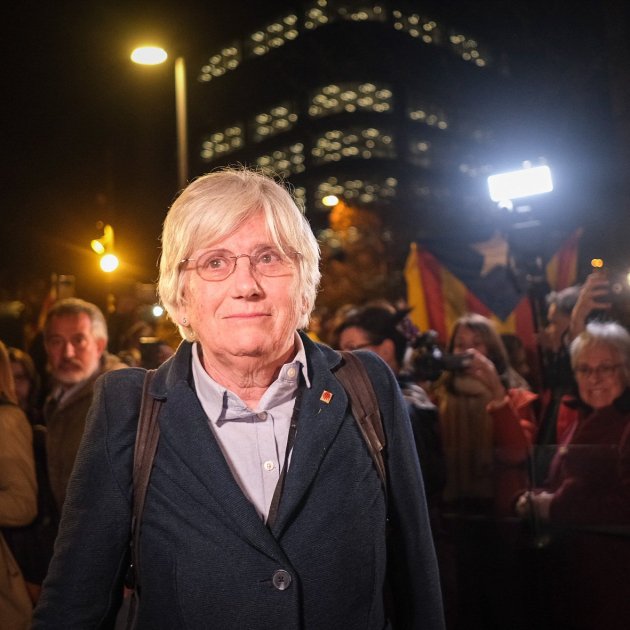Insistent. The public prosecutors of the Spanish Supreme Court have asked judge Pablo Llarena that, given the non-appearance of Catalan MEP Clara Ponsatí in court last month, that she be given another summons to make a statement as a person investigated for the crime of disobedience to the Constitutional Court over Catalonia's 1st October referendum, as announced this Thursday by the prosecution service. Ponsatí was arrested by the Mossos d'Esquadra police, on March 28th, when she was walking around Barcelona, upon returning to the country after five years of exile. She was taken to the Barcelona duty court, and hours later was notified of the summons from the Supreme Court for April 24th. However, the former Catalan minister did not appear before the judge, instead returning to Brussels where she had work at the European Parliament.
Prosecutors say it is "inadmissible"
In the text presented to the Supreme Court, the prosecutors Javier Zaragoza and Fidel Cadena also asked for the rejection of the request by the Junts MEP's defence lawyer that Ponsatí's statement be suspended until the European chamber resolves whether she was protected by immunity. They qualify that request as "inadmissible and inapplicable" assuring that the waiver of parliamentary immunity should not be requested to lift Ponsatí's protection as an MEP, nor wait for any response, because she was prosecuted for alleged offences one year and 10 months before she became a member of the European Parliament. Lawyer Gonzalo Boye asserted to judge Llarena that he could not summon Ponsatí due to her immunity and that he also had to wait for the chamber's response.
Ponsati's parliamentary calendar
Prosecutors Zaragoza and Cadena set out in their text that one of the reasons that Clara Ponsatí gave for not appearing before the judge on April 24th, was that she had working meetings in committees of the European Parliament. Thus, in order to avoid this coincidence in the future, they propose to the judge that he ask the former minister's lawyer for the planned schedule of her attendance at the European Parliament in order to "match her rights as a member of the European Parliament and her procedural obligations derived from her status as under investigation" in the case of Catalonia's independence process.
"She has enjoyed immunity" in Spain
The prosecutors also affirm that since Clara Ponsatí was proclaimed a member of the European Parliament "she has fully enjoyed in the territory of the state to which she belongs the immunities and prerogatives provided for national MPs", as set out in the European protocol, and that "her immunity to travel in the territory of the Union has been scrupulously respected to guarantee her attendance at the European Parliament". Despite this, she was arrested when she set foot in Catalonia: after a press conference at the Journalists Association in Barcelona, the Mossos took her before the court on duty.
In judge Llarena's update of her prosecution details, on March 28th, required due to the abolition of the Spanish crime of sedition, which left her prosecuted only for a crime of disobedience, which cannot be penalised by imprisonment, he indicated that as the law states she could be arrested in Spanish territory for the sole purpose of bringing her before a judge. Thus, the two prosecutors recall that, in the resolution, the judge indicated that, according to the law, if she did not appear before the judge, she could be arrested in order to be brought before the judge, as the Catalan police did, and insists that "arrest can only applied until she appears before the judicial body".
Finally, in its brief, the prosecutors admits that Ponsatí can only be arrested in Spain, and that this will only be to appear before the judge and then she will be released. And it concludes that her rights as a MEP have not been violated and that the judge should summons her to appear once again.
